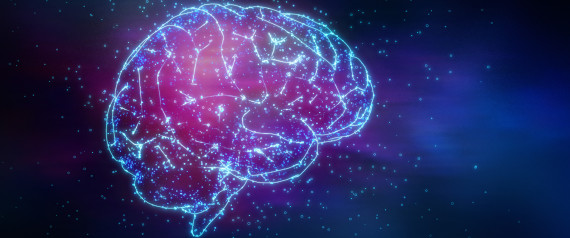Even if you’ve shunned all distractions, you still won’t absorb information you read online as well as you would if you’d read it in a book. And you can blame hypertext for that. Those colorful little links scattered throughout online articles (including this one) make your brain work harder than it would otherwise, leaving less brain power to process what you’re reading. Even just reading on screens, like a laptop or iPad -- links or no links -- has been shown to diminish comprehension.
Research has shown that reading linked text “entails a lot of mental calisthenics -- evaluating hyperlinks, deciding whether to click, adjusting to different formats -- that are extraneous to the process of reading,” Carr wrote in “The Shallows.” And giving your brain more work to do makes it harder to absorb information. Text that’s peppered with photos, videos and ads is even worse.

It’s strange—to the point of being destructive—how we classify and grade occupations. It is my observation that most human activities require more cerebral involvement than we normally credit. Overall, I don’t like the division between the respect we give manual as opposed to cerebral work. There is an assumption of superiority there which owes more to class superiority than to merit. I was brought up to believe in it implicitly. I no longer do so, and now regard such attitudes as destructive.
Be that as it may, writing is generally considered to be an almost entirely cerebral activity—and I certainly pay great attention to anything I see regarding cognition.. Firstly, I know I rely on my mind to write; secondly, I am acutely aware of both my mind’s strengths and weaknesses; thirdly, I am decidedly uneasy at the effect of the barrage of propaganda we have to endure 27/7; fourthly, I am even more concerned at the possible consequences of how we currently communicate.
Where the latter is involved, I am referring to everything from the phone to the internet, to tablets, to the Smart Phone—and, in particular, to texting. We seem to have evolved a culture of interruptions—the last thing a writer needs. As for multitasking, it is best left to helicopter pilots (who have no choice).
I have never flown a helicopter though I have spent a few hours in simulators. I flew a Blackhawk adequately, but the Apache blew my mind. Flying a helicopter is hard enough, but gunship crews have to shoot and communicate as well—and control drones. Now, that really is multitasking (while people are shooting at you).
I salute you guys.
I am absolutely sure that technology has an impact on cognition. As for one’s ability to write—I’m not sure I can tell. It is certainly vastly helpful in many ways, but I’m equally sure it can be destructive to focus—if you let it. Getting into the zone and staying there is a discipline which requires work. In particular, you have to make a conscious effort not to be distracted—not an easy thing in the context of our current culture.
The 2011 book The Shallows: What The Internet Is Doing To Our Brains, by Nicholas Carr includes the claim by neuroscientist Michael Merzenich that technology is causing our brains to be “massively rewired.”
This led the Huff Post to put together a provocative piece on the negative effects of technology. I’ll just list the headings.
1. Tech is screwing up your sleep.
2. You’re easily distracted.
3. You can’t remember much...
4. ...so you’re relying on the Internet to remember things for you.
5. And you're much more forgetful than you used to be.
6. You can’t concentrate on what you’re reading.
7. You can’t find your way around without GPS.
8. You have the brain of a drug addict.
Good grief! If that little lot is a consequence of utilizing technology, the prospect of becoming a real drug addict has singular appeal. Clearly, many Americans agree with me since half of us are on legal drugs already.
I’m not, as it happens. I’ll take meds in extremis, but I find they dull the brain—and who knows what multiple meds do to you. Very few have been tested in combination.
Now to make a confession: People apart, the most distracting influence—as far as I am concerned—is the radio. I love it so—and turn NPR off with the deepest regret. But if I am to get into the zone, it has to go.
You don’t want to know what I feel about texting—except that I rate it along with leaf-blowers—and it’s the strongest argument I know in favor of capital punishment.
No comments:
Post a Comment